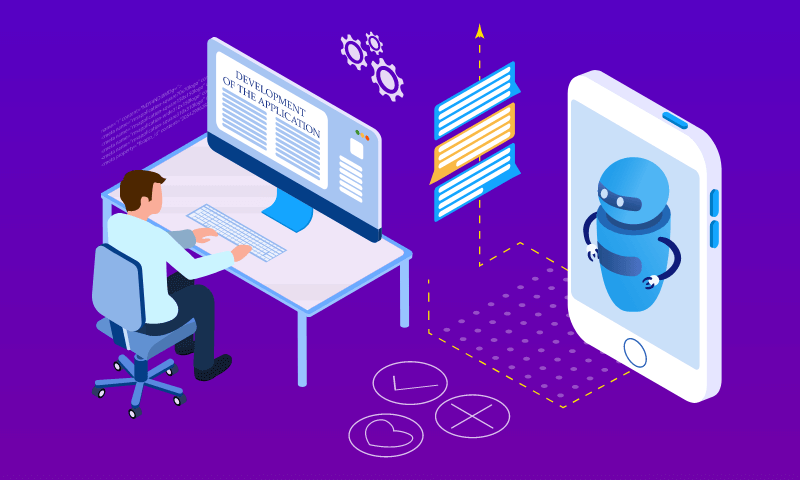In the rapidly evolving world of technology, Artificial Intelligence (AI) has emerged as a beacon of innovation, particularly in the realm of mobile app development. The integration of AI within mobile applications is not just transforming the way apps are built and function but is also redefining user experiences, offering personalized, intuitive, and engaging interactions.
Introduction
The infusion of AI into technology has been nothing short of revolutionary. Among the various facets of technology it has touched, mobile apps stand out due to their ubiquity and significance in our daily lives. This article delves into how AI is shaping the future of mobile app development, making apps smarter, more intuitive, and increasingly indispensable.
The Role of AI in Mobile App Development
AI is at the forefront of enhancing the capabilities of mobile apps. Through AI-driven personalization, apps can now understand user preferences, habits, and behaviors, offering tailor-made experiences that were once the domain of science fiction.
Enhanced User Experience
AI contributes significantly to improving user experiences. By analyzing user data, AI algorithms can predict user needs and automate tasks, making app interactions smoother and more efficient.
AI Technologies Revolutionizing App Development
Several AI technologies are key players in the transformation of app development:
Machine Learning and Algorithms
These are the backbone of AI in apps, enabling them to learn from user interactions and improve over time.
Natural Language Processing
NLP allows apps to understand and interpret human language, facilitating seamless interactions between users and apps through voice or text.
Computer Vision
This technology enables apps to comprehend and interpret visual information from the world, opening up innovative use cases like augmented reality shopping experiences.
Case Studies
AI-powered Recommendation Systems
Apps like Netflix and Spotify use AI to analyze your preferences and suggest content you’re likely to enjoy, enhancing user engagement.
Voice Assistants and Chatbots
Voice-powered personal assistants and chatbots have become commonplace in apps, providing users with hands-free operation and instant support.
Challenges and Solutions
Integrating AI into mobile apps comes with its
set of challenges, particularly concerning data privacy and security. Ensuring user data is handled responsibly and transparently is paramount. Additionally, maintaining a balance between AI automation and the human touch is crucial to keeping apps relatable and user-friendly.
The Future Trends in AI and App Development
Looking ahead, predictive analytics will play a significant role in foreseeing user actions, while augmented reality, powered by AI, promises to create even more immersive app experiences.
Impact on Developers and Businesses
As AI continues to evolve, so too must the skill sets of developers. The future will demand a blend of technical AI knowledge and creative problem-solving. For businesses, AI opens up new models and opportunities, from AI-driven marketing strategies to customer service innovations.
Tools & Technologies for mobile app Development
Kotlin,
Conclusion
The integration of AI into mobile app development is a game-changer, promising more personalized, intuitive, and engaging user experiences. As we look to the future, the possibilities of AI in app development are boundless, heralding an exciting era of smart applications that anticipate our needs and preferences.
FAQs
1. How does AI personalize user experiences in apps?
AI analyzes user data to understand preferences and behaviors, enabling apps to offer personalized content and suggestions.
2. What role does machine learning play in app development?
Machine learning allows apps to learn from user interactions, continuously improving functionality and user experiences over time.
3. Can AI improve app security?
Yes, AI can enhance app security by detecting and preventing fraudulent activities through behavior analysis and anomaly detection.
4. What are the potential privacy concerns with AI in apps?
AI-driven apps require access to user data, raising concerns about data privacy and the ethical use of information.
5. How can developers keep up with AI advancements in app development?
Continuous learning and staying abreast of the latest AI research and tools are crucial for developers to integrate AI effectively into app development.








